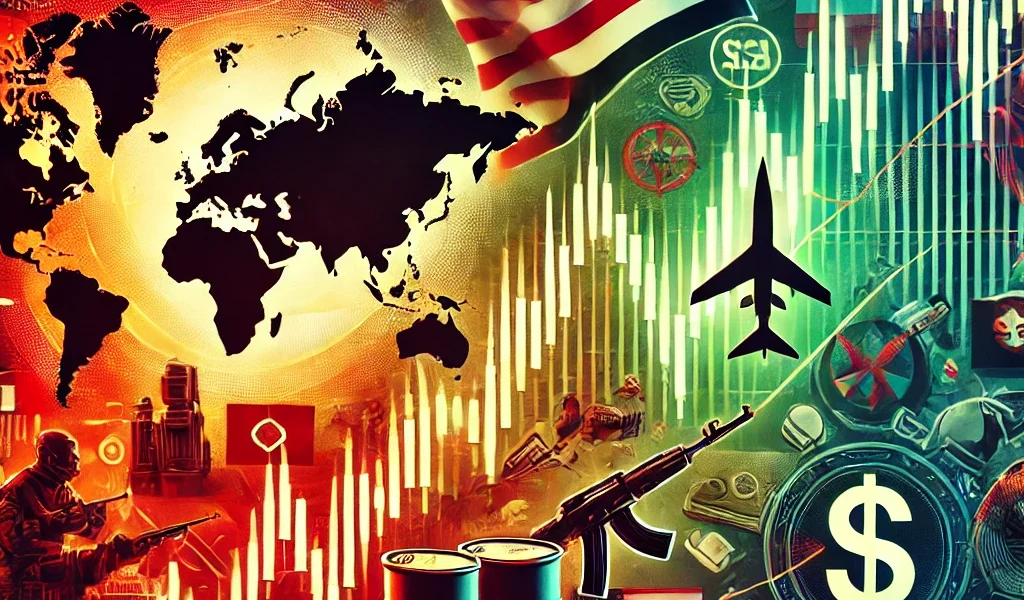Introduction
Geopolitical events have always played a significant role in shaping global financial markets. From wars and political tensions to trade agreements and economic sanctions, such events influence investor sentiment, stock prices, and overall market stability. For investors, understanding these dynamics is crucial to making informed decisions and mitigating risks.
In this blog, we’ll explore how geopolitical events impact the stock market, discuss historical examples, and provide strategies for investors to navigate uncertain times.
Understanding the Connection Between Geopolitics and Stock Markets
Geopolitical events refer to political, economic, and social developments that occur on an international scale. These events can trigger volatility in the stock market for several reasons:
- Investor Sentiment: Uncertainty breeds fear, leading investors to sell stocks and move towards safer assets like gold or government bonds.
- Supply Chain Disruptions: Wars, trade restrictions, or diplomatic conflicts can disrupt global supply chains, affecting corporate earnings.
- Currency Fluctuations: Political instability can cause fluctuations in currency values, impacting multinational corporations.
- Energy and Commodity Prices: Geopolitical tensions, especially in oil-producing regions, often lead to fluctuations in commodity prices, impacting stock markets.
- Government Policies and Regulations: Sanctions, tariffs, and trade policies directly affect industries and stock performance.
Historical Examples of Geopolitical Impact on Stock Markets
1. The Russia-Ukraine War (2022-Present)
The Russia-Ukraine conflict led to significant stock market volatility worldwide.
- Stock Market Reaction: European and U.S. stock markets saw a sharp decline as investors feared supply chain disruptions and rising energy costs.
- Sectoral Impact: Energy stocks surged due to oil and gas supply concerns, while airline and travel stocks took a hit due to rising fuel costs and uncertainty.
- Safe-Haven Assets: Gold and U.S. Treasury bonds gained traction as investors sought safety.
2. U.S.-China Trade War (2018-2020)
The trade war between the United States and China impacted global stock markets due to imposed tariffs and trade restrictions.
- Stock Market Reaction: Major indices like the S&P 500 and Dow Jones Industrial Average experienced fluctuations based on trade negotiations.
- Sectoral Impact: Technology and manufacturing stocks suffered due to tariff impositions, while domestic-focused companies benefited from shifts in production.
- Currency Volatility: The Chinese yuan weakened, affecting global currency markets.
3. Brexit (2016-2020)
The United Kingdom’s decision to exit the European Union created prolonged uncertainty in global financial markets.
- Stock Market Reaction: The British pound plummeted, and UK stocks faced volatility.
- Sectoral Impact: Banks and multinational companies struggled, while local industries found opportunities in new trade agreements.
- Investor Confidence: The long negotiation process kept global investors on edge.
How Different Sectors React to Geopolitical Events
Not all stocks react the same way to geopolitical events. Some industries benefit, while others suffer. Here’s a sector-wise breakdown:
1. Energy Sector
- Oil and gas stocks generally rise during geopolitical conflicts involving major oil-producing regions.
- Example: The Russia-Ukraine war led to a surge in crude oil prices, boosting energy stocks.
2. Technology Sector
- Tech stocks tend to be volatile, especially if trade restrictions affect semiconductor supply chains.
- Example: The U.S.-China trade war negatively impacted companies like Apple and Huawei due to component tariffs.
3. Defense and Aerospace
- Defense stocks usually perform well during geopolitical instability due to increased government spending on military equipment.
- Example: Companies like Lockheed Martin and Raytheon Technologies often see stock price increases during periods of tension.
4. Consumer Goods and Retail
- This sector often faces challenges if trade disruptions lead to higher costs or supply chain issues.
- Example: The COVID-19 pandemic and related geopolitical restrictions caused shortages and increased product prices.
5. Financial Sector
- Banking and investment firms react strongly to changes in global stability, currency fluctuations, and regulatory changes.
- Example: Brexit had a major impact on UK-based financial institutions.
How Investors Can Navigate Geopolitical Uncertainty
While geopolitical risks are unpredictable, investors can take strategic steps to minimize losses and capitalize on opportunities:
1. Diversify Your Portfolio
- Avoid putting all investments in one region or industry.
- A mix of stocks, bonds, commodities, and real estate can provide stability.
2. Invest in Safe-Haven Assets
- During uncertain times, assets like gold, U.S. Treasury bonds, and the Swiss franc often retain or gain value.
3. Monitor Market Trends and News
- Keeping an eye on global developments can help investors make timely decisions.
- Reliable sources include Bloomberg, CNBC, and government reports.
4. Consider Defensive Stocks
- Companies in utilities, healthcare, and consumer staples tend to be less affected by geopolitical shocks.
5. Hedge with Options and ETFs
- Using index funds and hedging strategies can protect against sudden market declines.
- Example: ETFs tracking gold or defense stocks can provide a hedge against risk.
Conclusion
Geopolitical events have a profound impact on stock markets, affecting investor confidence, corporate earnings, and economic stability. While such events can lead to volatility, informed investors can take strategic actions to protect their portfolios and even find new opportunities.
By staying informed, diversifying investments, and focusing on long-term strategies, investors can navigate market uncertainties more effectively. The key is to remain adaptable and prepared for the unexpected shifts that geopolitical developments may bring.




